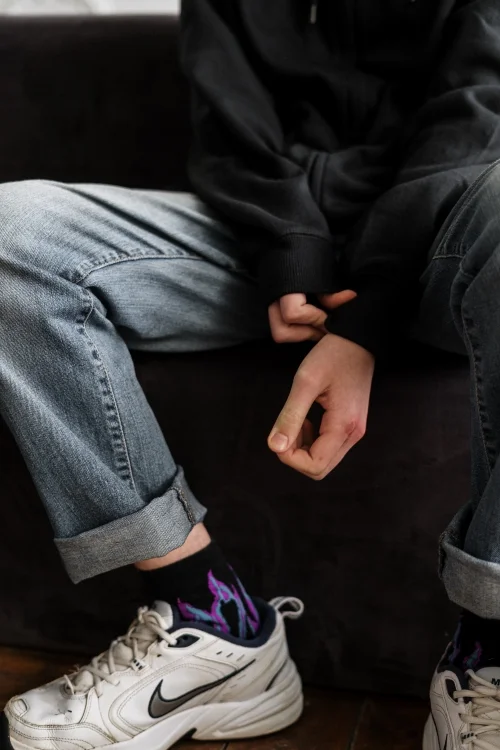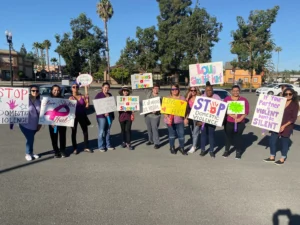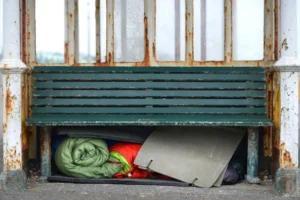Domestic violence is a devastating problem, globally and in the US. It harms people physically, mentally, and emotionally, and creates long-lasting negative consequences that can have a ripple effect on future generations. It can also cause problems for those future generations in the present, when children are exposed to domestic violence. Here’s a look at domestic violence and children, and how kids are impacted in the wake of violence.
Children in Domestic Violence: Statistics
Within the span of a single day back in 2007, it was found that “13,485 children were living in a domestic violence shelter or transitional housing facility,” while “another 5,526 sought services at a non-residential program.”
In 2009, a study found that:
-
Almost 40 percent of American children were direct victims of 2 or more violent acts, and 1 in 10 were victims of violence 5 or more times.
-
Almost 1 in 10 American children saw one family member assault another family member, and more than 25 percent had been exposed to family violence during their life.
Now, nearly twenty years later, we are still struggling with the prevalence of domestic violence and its effects on children. The National Coalition Against Domestic Violence reports that “1 in 15 children are exposed to intimate partner violence each year, and 90% of these children are eyewitnesses to this violence.”
In light of the continuation of domestic violence in the presence of children, let’s take a closer look at how those children are affected.
Domestic Violence: Effects on Children
The effects of domestic violence on children are wide-ranging and far-reaching. They can be highly detrimental to childhood behavior, emotions, and mental and physical health, and can persist into adulthood. Read on to see how domestic violence affects children in the short term and the long term.
Short-term Effects
When children witness or are victims of domestic violence, they often experience high levels of fear and anxiety. In the short-term, these traumatizing experiences impact children in different ways depending on their age group.
Preschool aged children may exhibit these symptoms:
-
Bed-wetting
-
Thumb-sucking
-
Increased crying and whining
-
Difficulty falling or staying asleep
-
Stuttering
-
Hiding
-
Signs of severe separation anxiety
School-aged children may demonstrate:
-
Signs of guilt
-
Lowered self-esteem
-
Decreased participation in school or extracurricular activities
-
Losing friends
-
Getting into trouble more frequently
-
Headaches
-
Stomachaches
Finally, teenagers more often experience effects such as:
-
Fighting with family members
-
Skipping school
-
Engaging in risky behaviors
-
Lowered self-esteem
-
Higher likelihood of trouble with the law
-
Increased violent tendencies
-
Depression
Long-term Effects
In the long term, the psychological impact of domestic violence on children can be severe. Children who are exposed to domestic violence can experience psychological wounds and effects that stick with them, including:
-
Fear of harm or abandonment
-
Excessive worry or sadness
-
Guilt
-
Inability to experience empathy or guilt
-
Habitual lying
-
Low frustration tolerance
-
Emotional distancing
-
Poor judgment
-
Shame
-
Fear about the future
-
Insomnia
-
Self-harm
-
Aggressive and antisocial behaviors
-
Depression and anxiety
Children who witness domestic violence or are victims of violence themselves are also at high risk for negative future outcomes. Boys are more likely to commit domestic violence as adults, while girls are more likely to become victims as adults. The impacts of domestic violence on children can also include post-traumatic stress disorder. Furthermore, children exposed to domestic violence are at higher risk for negative health outcomes like diabetes, obesity, heart disease, and more.
For the children in the present, and for the adults they will become, it is crucial that we address domestic violence. Working to prevent violence and to help those affected can promote more positive outcomes in the future.
At Crisis House, we are here during these stressful times to support children and families with our services and resources. We provide crisis intervention, transitional and permanent housing, and services for families and children fleeing domestic violence. We’re leaders in critical services in East County, San Diego, administering programs for individuals and families experiencing domestic violence and homelessness.
See our impact and help us reach those in need by donating or volunteering today! You can also sign up for our newsletter to stay in the loop as we work to connect families, children, and individuals to crucial resources. Together, we can stop the cycle of domestic violence, child abuse, and homelessness and empower people to renew their lives!







